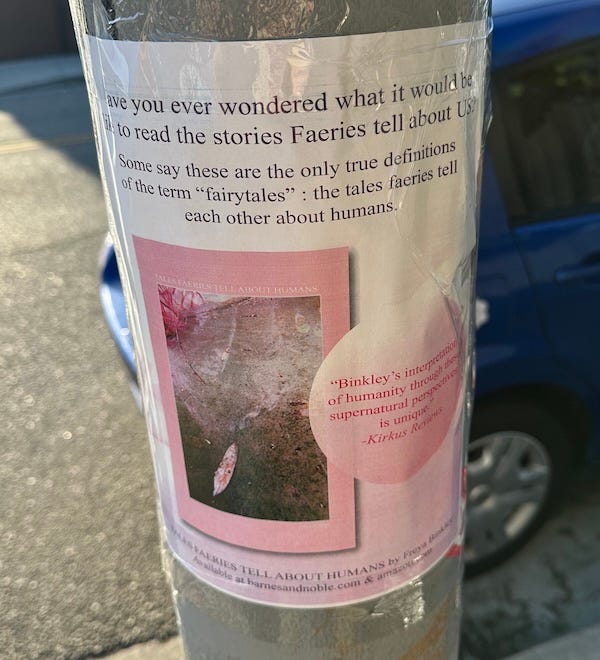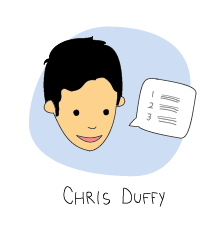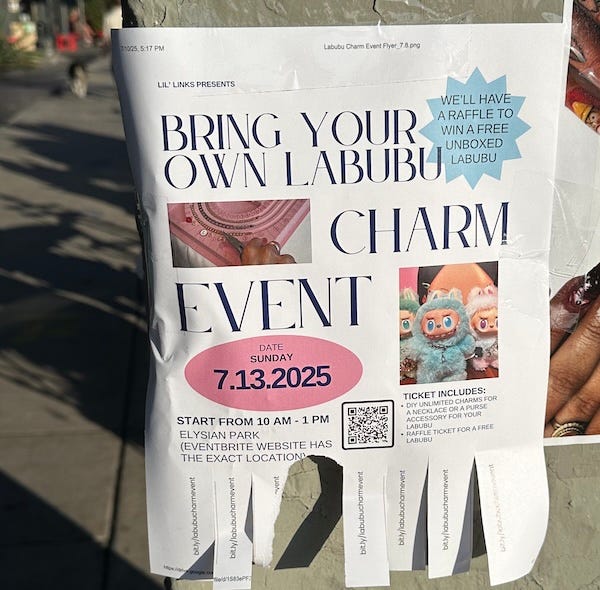Some QR codes that I've seen recently
As soon as the QR code was invented, technology had peaked and we started sliding downhill. Plus recs for Hanif Abdurraqib on despair, Liz Alterman, and Black Panthers
All around me, there are QR codes. I learned today from Wikipedia that QR code is short for quick-response code and they were “invented in 1994 by Masahiro Hara of the Japanese company Denso Wave for labeling automobile parts.”
Masahiro could never have dreamed how far his invention would go beyond labeling carburetors and crankshafts.
Sometimes, I use QR codes to see the menu at a restaurant.
Sometimes, I use QR codes to log in to an account.
Sometimes, I use QR codes to visit a website.
But other times, the QR codes transcend any use at all. They become art.
Here are some QR codes I have seen lately:

I have never activated any of those QR codes, nor do I intend to. But whatever you do with the codes is up to you. That’s the choice that Masahiro Hara and the residents of Silver Lake, Los Angeles have given to us all.
And now, on to this week’s list…
This week’s list
GREAT:
A beautiful essay by the poet and writer Hanif Abdurraqib about what emotions we are allowed to feel and what it means to experience despair. “The feeling is most commonly framed as an end point, a level of despondency that cannot be overcome. But it doesn’t have to be so.” In Defense of Despair
FUNNY:
Liz Alterman is an author and comedy writer whose muse is the pains and indignities of middle age. No one captures the specificity and comedy better than her. Whether it’s in her latest novel, Claire Casey’s Had Enough, or her short bits for McSweeney’s, she always has me laughing. Here are three particularly good ones: Acts of Rebellion for the Middle-Aged, Middle-Aged Concertgoer Mad Libs, and 16 Surprising Ways to Injure Yourself When You’re Over 40
INTERESTING:
I’ve been thinking a lot recently about how ideas that were once considered fringe and radical can become mainstream over time. This happens in bad ways, of course. But it also can happen in ways that make calls for things like economic justic, peace, or equality feel less alienating to a larger and larger segment of the population. One specific example that I’m thinking about is the platform of Black Panther party. The way the Black Panthers were framed to me in high school history was as extremists. But reading the full text of their 1966 platform now feels strikingly current. They were working on those issues then and we need to be working on those same issues now.
BONUS FOR PAYING SUBSCRIBERS:
Paying subscribers make Bright Spots possible! This newsletter will always be available for anyone to read for free, but paying subscribers let me make that happen! They also get access to special features as well the entire archive of past posts. Paying subscribers also get my undying gratitude (which never dies). It’s never too late to join them!
That's it for this week. Thanks for reading! Please share Bright Spots with anyone you think might enjoy it.
I know that technically the faeries sign didn’t have a QR code but, come on! I couldn’t keep that one to myself!
Chris Duffy
This has been Bright Spots, a newsletter.
…wait, who are you?
I'm Chris Duffy, a comedian, TV writer, podcast host, and both a former fifth grade teacher and a former fifth grade student. I’m currently writing a nonfiction book about humor for Doubleday.








